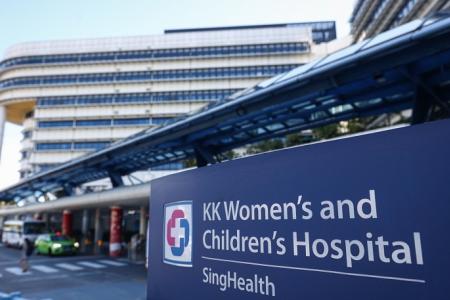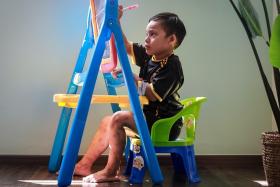KKH to transform population health, boost fertility rates
Maternity specialist KK Women’s and Children’s Hospital (KKH) announced on Oct 5 a programme to tackle pre-term pregnancies and births, an issue in Singapore despite declining birth rates and advancements in medical care.
The hospital said Singapore’s premature birth rate was 8.2 per cent in 2023, marginally lower than the 8.8 per cent recorded in 2014, but much higher than places such as Hong Kong (6.5 per cent) and China (6.9 per cent).
The programme will provide accurate screening and prediction tools, and preventive strategies to proactively reduce and prevent pre-term pregnancies and births, KKH said.
Supported by Far East Organization, it will also establish a national database to enable the close monitoring as well as targeted interventions of women with risk factors for pre-term pregnancy.
“Comprehensive and up-to-date information from the database will help the team identify trends and gain a better understanding of the specific challenges faced by couples in Singapore,” said the hospital.
The programme is one of 15 KKH is introducing to transform population health and boost Singapore’s fertility rates, the hospital said at a gala dinner at The Ritz-Carlton to mark its 100 years as a specialised maternity hospital.
President Tharman Shanmugaratnam was the guest of honour.
The hospital, which opened in 1924 with just 30 beds and 12 children’s cots, said it is channelling more than $30 million to address issues such as pre-term birth, mental wellness and health literacy in the community.
One of the programmes will look into improving the metabolic health of children until they turn 18.
Professor Fabian Yap said the programme will focus on two groups of children. For those who are currently well, the goal is to maintain good metabolic health, while for those who have some form of metabolic illness such as diabetes, the goal is to prevent them from developing more risk factors.
Prof Yap, who leads the programme and is the deputy director of SingHealth Duke-NUS Maternal and Child Health Research Institute, said the risk factors for cardiovascular diseases have their origins in childhood and are often interconnected.
However, they are also preventable and manageable with lifestyle changes to diet, sleep, physical activity and good mental health practices.
“The key is to act early, and to engage the child’s network of caregivers,” he said, adding that guiding parents on how their child can adopt healthy lifestyle practices to their diet, sleep, physical activity and mental health will help reduce metabolic health risks.
Separately, a two-year pilot for midwives to support new mothers at home is set to start in early 2025.
The programme is expected to benefit 400 post-natal mothers living in Kallang, Sengkang and Punggol.
Ms Julie Tay, who leads the programme, said midwives play a crucial role after childbirth by guiding mothers through the recovery process, helping with infant care and providing essential breastfeeding support.
However, midwifery services at KKH have been largely confined to the hospital setting.
With the new programme, midwives will follow up with mothers and infants through home visits, said Ms Tay, who is also the assistant director of KKH’s nursing division.
“This aspect is especially important for first-time mothers or those lacking a strong support network as it provides essential guidance on newborn care, breastfeeding and postnatal recovery.
“Community midwives serve as a vital link between the hospital and home, offering personalised care that addresses both physical and emotional well-being,” she added.
The programme will cover the first six weeks after childbirth, commonly referred to as the “golden period”.
Mothers who need support beyond this period due to breastfeeding difficulties, post-natal depression or other medical concerns will be referred to the relevant healthcare services for continued care.
President Tharman, in his speech, said the midwifery programme will support mothers’ well-being and newborn babies’ healthy development in the first six weeks after birth.
“As we all know, it can be the most challenging time for mothers, as they can experience significant physical, emotional and psychological changes in the weeks and months following birth.
“Most especially for first-time mothers and those without strong support. No mother should feel isolated or overwhelmed,” he said, adding that fathers must also be actively engaged at home and play their roles to look after the baby.
President Tharman said the midwifery, metabolic health and pre-term pregnancy prevention programmes, taken together, focus on early intervention to provide a strong foundation for long-term health of mother and child.
Speaking at the dinner, KKH chief executive Alex Sia said the hospital will continue to push the boundaries to set new benchmarks in the health of women and children, transform population health and foster positive change for generations.
Get The New Paper on your phone with the free TNP app. Download from the Apple App Store or Google Play Store now


